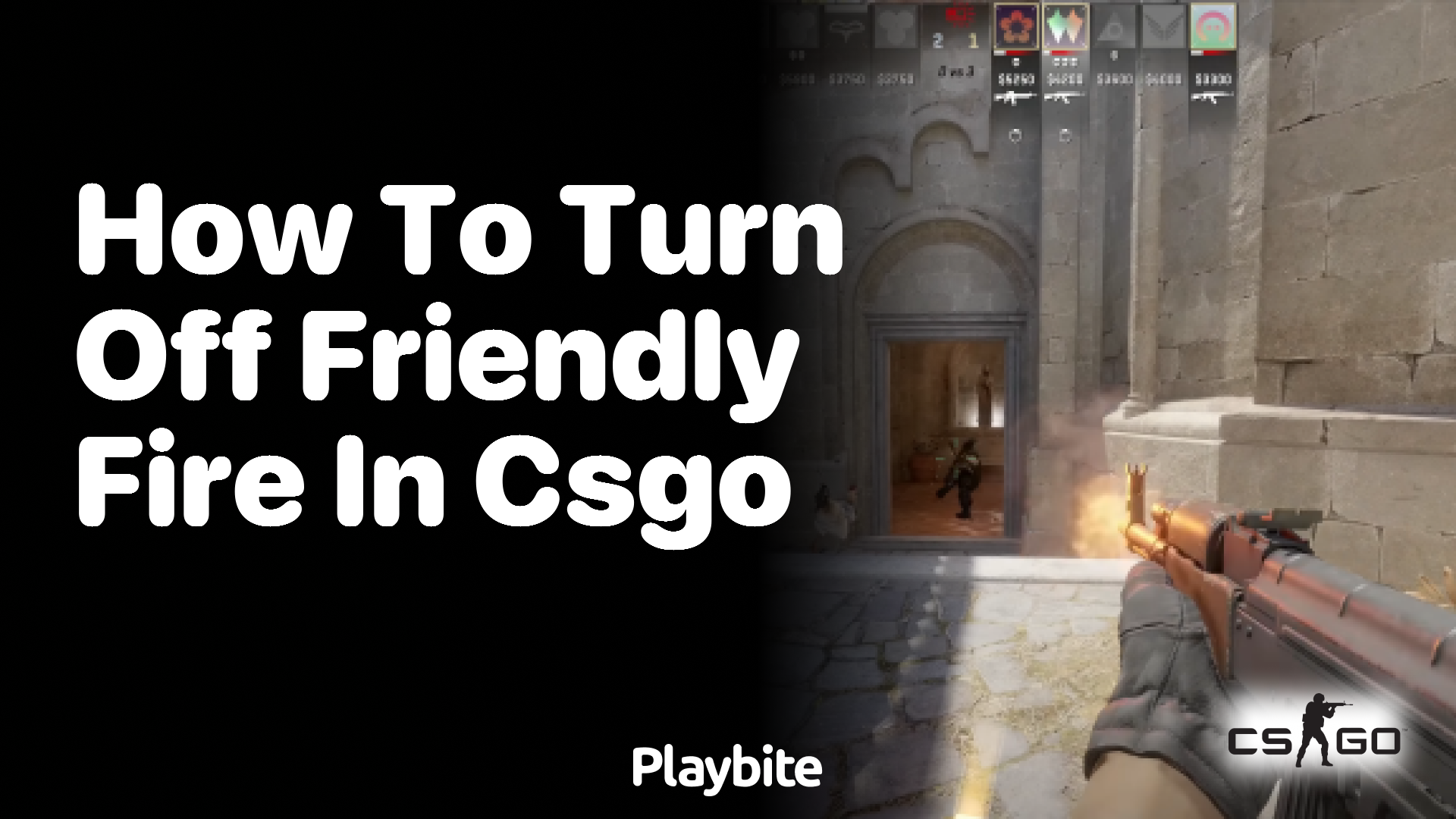Brett Rickaby's Insightful Corner
Exploring the world through news, tips, and intriguing stories.
When Your Teammate's Aim is Your Worst Enemy: Exploring Friendly Fire in CSGO
Discover how friendly fire can turn your CSGO squad into foes! Uncover the hilarious and chaotic moments that make teamwork tricky.
The Dangers of Friendly Fire: How to Minimize Collateral Damage in CSGO
The dangers of friendly fire are a significant concern in Counter-Strike: Global Offensive (CS:GO), where split-second decisions can lead to unintended consequences. Friendly fire can not only result in a loss of a key player but also affect the overall morale and strategic advantage of a team. To minimize collateral damage, players should adopt a more cautious approach to communication and positioning. Establishing clear callouts for different locations on the map can help prevent accidental engagements, allowing teammates to stay aware of each other's positions and movements.
Another effective method to mitigate friendly fire is through the use of training scenarios and practice modes. By familiarizing yourself with the maps and practicing specific strategies as a team, you can reduce the likelihood of misfires during critical moments. Moreover, using game features like team damage settings can help players develop better situational awareness without the risk of punishing their teammates, especially for those new to the game. Remember, minimizing friendly fire is not just about avoiding damage, but also about fostering a cooperative and supportive team environment.

Counter-Strike is a popular tactical first-person shooter that has captivated gamers for years. One of the most sought-after weapons in the game is the m4a1s skins, which offers players unique designs and enhanced gameplay experiences. As a team-based game, strategic planning and teamwork are key to achieving victory in various competitive modes.
Understanding Friendly Fire: Tips for Cooperation and Communication with Your Team
Understanding friendly fire in team-based environments is essential for fostering a collaborative atmosphere. Friendly fire incidents can lead to frustration and distrust among team members, negatively impacting overall performance. To reduce these occurrences, it is vital to establish clear communication protocols. Regularly check in with your teammates to share tactical decisions and maintain situational awareness. By coordinating your actions and understanding each other's roles, the likelihood of miscommunication declines, ultimately promoting a more cohesive unit.
In addition to communication, developing a culture of teamwork and cooperation can further diminish the risk of friendly fire. Encourage open dialogues during and after gameplay to discuss strategies and analyze situations where friendly fire occurred. Consider implementing best practices, such as using specific callouts for locations or enemy movements. By actively engaging in constructive discussions and learning from mistakes, your team will become more synchronized, leading to improved performance and fewer incidents of friendly fire.
Is Friendly Fire Affecting Your Game? Common Scenarios and Solutions in CSGO
Friendly fire can have a significant impact on your performance in Counter-Strike: Global Offensive (CSGO), often leading to frustration and confusion among team members. Common scenarios include accidental shots being fired during intense moments or miscommunication resulting in a team member being harmed during a critical play. For instance, a player might throw a grenade, not realizing that their teammate is in close proximity, leading to unnecessary deaths or lost rounds. These instances not only affect individual players but can also jeopardize the entire team's strategy and approach during matches.
To mitigate the effects of friendly fire, it is crucial to implement some basic strategies. First, always communicate with your teammates, ensuring everyone is aware of positioning before making any aggressive moves. You can use voice chat or in-game commands to inform others of your intentions. Secondly, familiarize yourself with the game’s mechanics and your team’s loadout to minimize potential mishaps. Lastly, consider practicing in lower-stakes environments to improve your aim and awareness. By taking these steps, you can cultivate a more cohesive team dynamic and enhance overall gameplay, reducing the likelihood of friendly fire incidents.